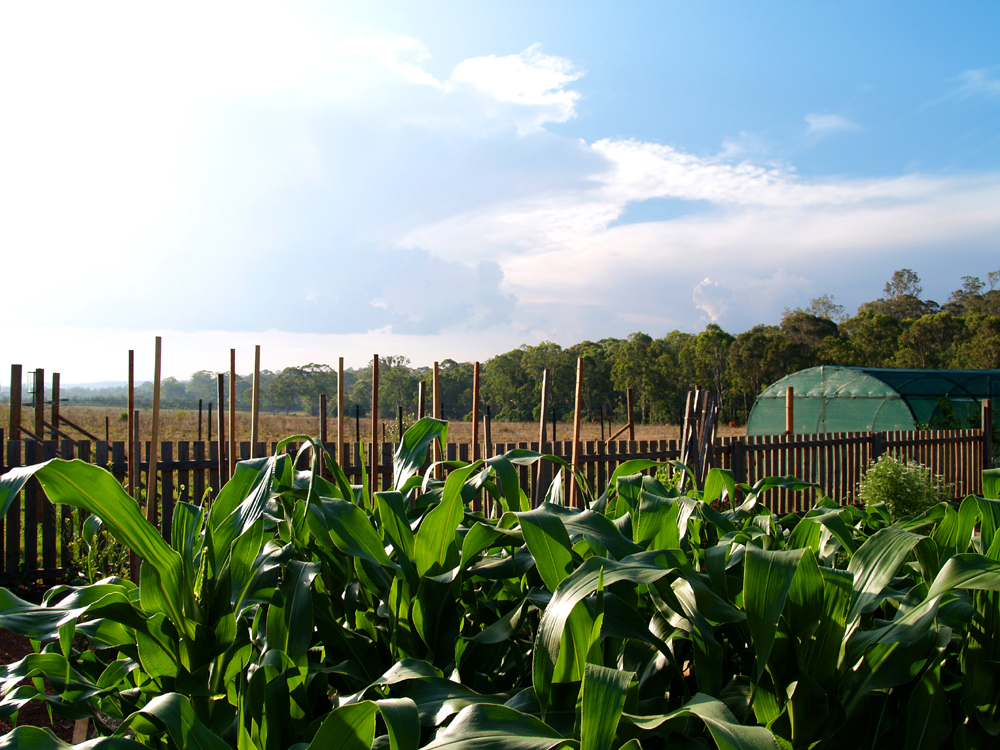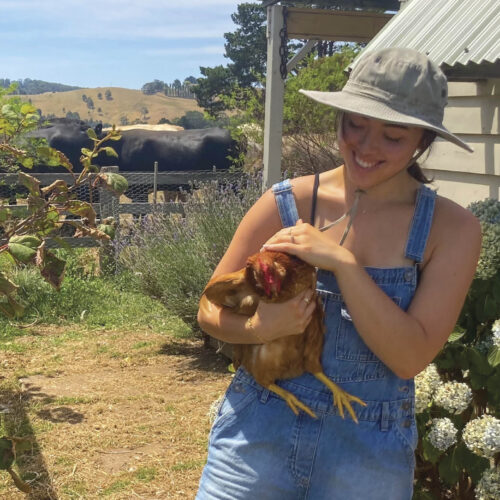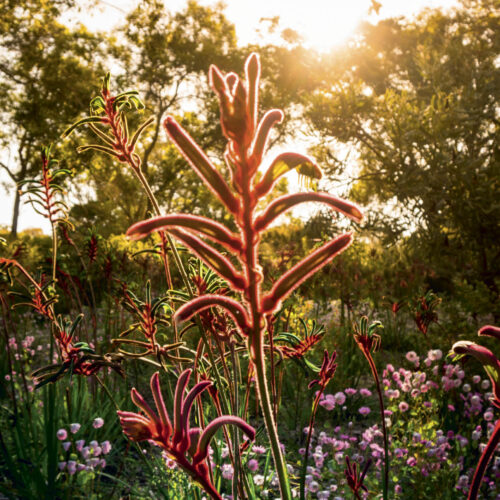Getting radical about organics
2011-04-05T23:05:07+10:00
Has the organic gardening and farming movement lost its revolutionary edge? It's time to redsicover the radical spirit of the organic pioneers, suggests Justin Russell.
Organic gardeners are among the happiest, most generous people I’ve ever met. When I make that statement to my conventional-gardening friends, they invariably shoot back at me the kind of look that’s usually reserved for dodgy salesmen and fervid televangelists. Honestly, I tell them. It’s true: the people I know who garden and farm according to organic principles are simply…happy.
It should hardly come as a surprise though, should it? The very act of organic gardening is about working with the soil and the seasons, rather than nuking everything in sight with toxic concoctions bearing names more suited to the battlefield than the backyard. Organic gardening is about connectedness and rootedness. Both qualities bring joy, with happiness the visible by-product.
And yet I have a nagging sense that happiness alone just aint gonna cut the mustard. The world is hurtling toward an energy-constrained, chaotic-climate abyss, and I’m worried that there aren’t more gardeners around who couple an underlying sense of joy with a simultaneous feeling of profound concern. Where are the gardeners with a fire in their belly? Are we so placated by the main-streaming of organics that we’re prepared to “go gentle into that good night” without raging “against the dying of the light” (as Dylan Thomas might have said). What organic gardeners need to rediscover, I think, is the radical spirit of the movement’s pioneers.
It’s been 80 years since Lord Northbourne first used the term “organic farming” in his book Look to the Land. At the time of publication in 1940, the shift to an industrial model of agriculture was in full swing. Proponents of the model championed it loudly, and dismissed organic agriculture as being anti-modern, nostalgic, and even sympathetic to Nazism. But Lord Northbourne and his English contemporaries Sir Albert Howard and Lady Eve Balfour, as well as Jerome Rodale in the US and Masanobu Fukuoka in Japan, didn’t flinch in the face of incessant counter propaganda from powerful chemical companies.
These days organics has gone mainstream and is the fastest growing sector in the food industry. The movement has been co-opted by agribusiness and is being courted by the big supermarkets, who insist that they are simply giving customers what they want. There are benefits in this kind of mainstreaming of course – healthier people and healthier landscapes chief among them – but the downside is that organic gardening has become like a much loved antique spade that’s losing its edge.
When I suggested this topic to my wife Kylie, she rightly shot back with “how can you be more radical?”. So, let’s run with an answer: what would look different if I added a healthy dollop of radical spirit to my generally happy countenance? For starters, I think it would mean abandoning outright the current popular media nonsense about outdoor rooms and exterior decorating. Tricked up, highly maintained, show-style gardens tend to be biodiversity deserts that do little else beside feed people’s need for control.
I’d be less paranoid about “pests”. Some gardening experts would have you believe that there’s an insect or disease lying in ambush around every corner and the necessary means of control is simply the replacement of a toxic spray with a non-toxic one. This “warfare in the backyard” approach sells organic gardening very short. Lord Northbourne and the organic pioneers were primarily focussed on creating living soil, and that ought to remain my focus today.
Ultimately, a more radical approach to organic gardening will require that I find better ways to live a more productive, human scale existence that’s in true harmony with the natural world. I’m desperate to make the earth a better place for future generations, and I can feel the fire rising in my belly. I hope it’s rising in yours too.






